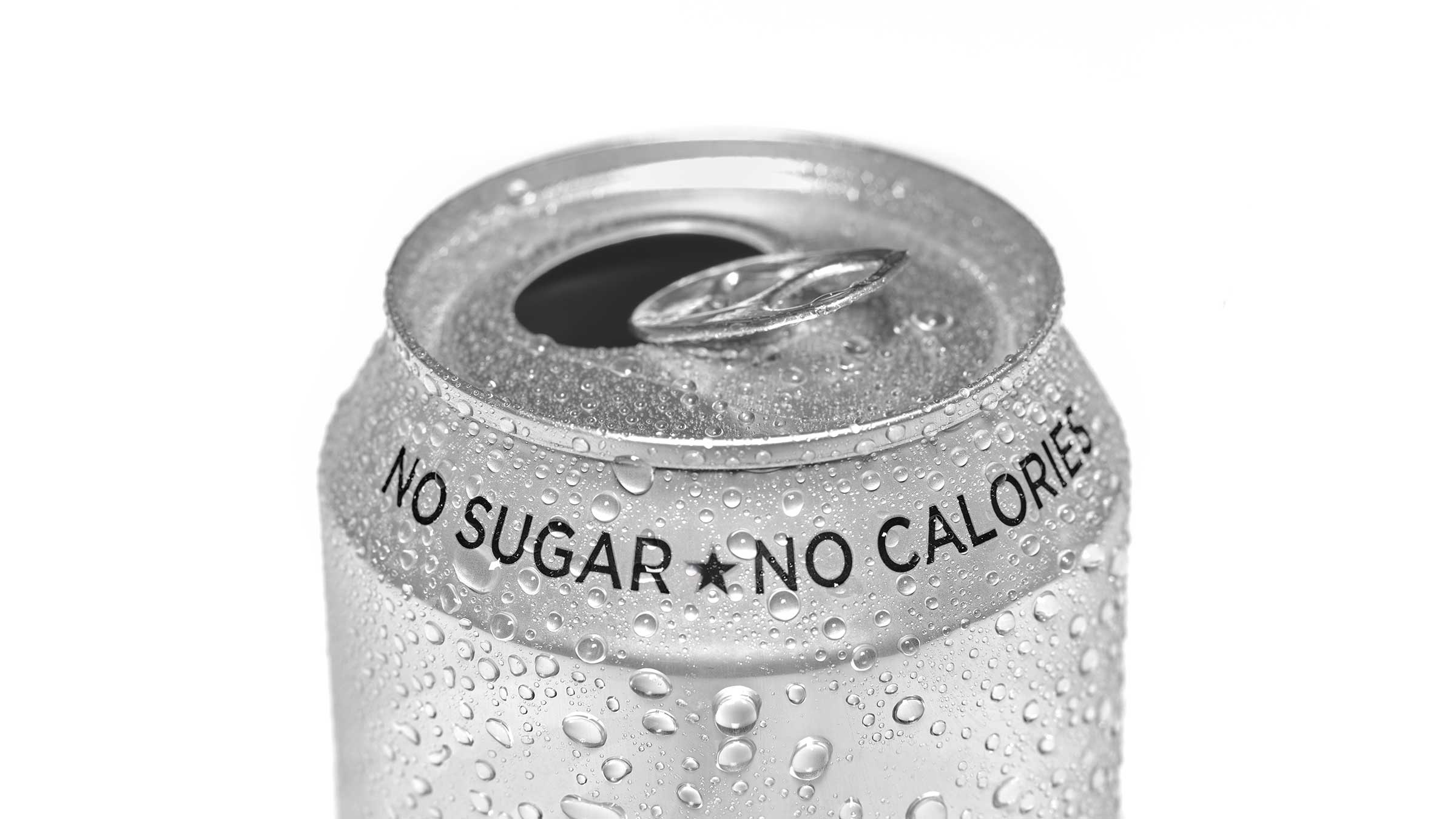Aspartame ‘possibly carcinogenic’: What to know about WHO classification
WHO committee says it's still safe to consume aspartame within a certain limit per day, but more studies needed to assess risk for humans
Aspartame, one of six artificial sweeteners the Food and Drug Administration has approved for use in the United States, has just been listed as “possibly carcinogenic to humans” (possibly cancer-causing) by the World Health Organization’s International Agency for Research on Cancer (IARC).
What does that mean for us? Let’s put this news into context.
What aspartame is, and how the sweetener functions in the body
Aspartame is about 200 times sweeter than the natural sugar sucrose, making it an effective sugar substitute for many foods, such as diet soda. Unlike other artificial sweeteners, aspartame is made up of two amino acids: aspartic acid and phenylalanine. Amino acids are the cornerstones of building proteins, which carry out functions in our cells.
Once it’s ingested, aspartame breaks down in the intestines, releasing those two amino acids as well as methanol — all of which are readily absorbed by the intestines.
Are there known dangers of aspartame?
The risks of consuming aspartame still aren’t clear. However, scientists and health care providers have researched this particular sweetener for at least 20 years, working to better understand it and identify potential adverse effects.
Why is the WHO listing aspartame as a possible carcinogen?
The World Health Organization (WHO) and its IARC have specific standards for classifying substances or products into different categories, and their conclusions are based on risk assessment. They typically base these decisions on accumulating available research, often attempting to weigh in on the findings and possible limitations. However, a substance such as aspartame can be reclassified if they consider the evidence adequate to justify the decision.
For instance, the WHO recently assessed 48 epidemiological studies in a review that indicated that aspartame consumption may be associated with a 10-15% increased risk for some cancers related to obesity. These findings can be considered evidence that aspartame is possibly cancer-causing, although this weak association might be explained by factors not related to aspartame consumption.
Previous analysis didn’t find a dose-response association between aspartame consumption and cancer, indicating that there may be some other factors at play.
In medicine, dose matters. Several substances that are harmless at low doses or at the recommended dose can be very harmful when consumed in excess. Often, the poison is in the dose.
The WHO and IARC press release from July 14, 2023, cites "'limited evidence' for carcinogenicity in humans." The Joint Expert Committee on Food Additives (JECFA), the reviewing committee, said that it's still safe for a person to consume aspartame within a certain limit per day, and that more studies are needed to assess aspartame's risk to humans. Their announcement is available online in PDF form.
"Science is continuously expanding to assess the possible initiating or facilitating factors of cancer, in the hope of reducing these numbers and the human toll,” said Dr. Francesco Branca, director of the WHO's Department of Nutrition and Food Safety. “The assessments of aspartame have indicated that, while safety is not a major concern at the doses which are commonly used, potential effects have been described that need to be investigated by more and better studies.”
Dr. Moez Sanaa, the WHO’s head of the Standards and Scientific Advice on Food and Nutrition Unit, said that the JECFA "concluded that the evidence of an association between aspartame consumption and cancer in humans is not convincing" after considering evidence on cancer risk in both animal and human studies.
“We need better studies with longer follow-up and repeated dietary questionnaires in existing cohorts," Dr. Sanaa said. "We need randomized controlled trials, including studies of mechanistic pathways relevant to insulin regulation, metabolic syndrome and diabetes, particularly as related to carcinogenicity.”
How likely is aspartame to cause cancer in humans?
For the average consumer, the likelihood of aspartame causing cancer is very low. If a daily Diet Coke was enough to cause cancer, we’d probably already know by now, because aspartame has been in American diets for decades. Nevertheless, we should never ignore new emerging evidence pointing in a different direction.
How much aspartame can we safely consume in a day?
The FDA has set the acceptable daily intake (ADI) of aspartame to an amount equal to 70 packets of aspartame (i.e., Equal), or the equivalent of 15 cans of diet soda. However, these limits aren’t representative of the average consumer’s aspartame use. In the United States, artificial sweetener users consume, on average, the aspartame equivalent of about two cans of diet soda a day. Even the most extreme users don’t typically consume more than the equivalent of five or six cans of soda.
Therefore, if one approaches five to six cans each day, that’s certainly too much. The typical healthy person who doesn’t have additional risk factors and ingests aspartame at a small fraction of this ADI level is likely safe. That might look like a couple of packets of Equal, a diet soda or a flavored “light” yogurt each day.
Why is aspartame in so many foods in the United States?
Like any other artificial sweetener, aspartame is added to food to increase the flavor without adding more sugars. Our body typically uses sugars as an energy source, and when we eat too much sugar, our body stores it. But unlike sugars, artificial sweeteners provide little, if any, energy. They’re a good alternative for those who want to control calorie intake or just reduce sugar consumption.
Because artificial sweeteners aren’t sugars, they also don’t raise blood glucose levels. That’s important for people who need to closely monitor their blood sugar, such as people with diabetes.
Should we avoid foods or drinks with aspartame?
If you’re someone who drinks five cans of Diet Coke a day or the equivalent, cutting down your intake to one or two might be a reasonable choice. But whether you should avoid aspartame altogether really depends on the person.
For someone who follows a balanced diet and consumes aspartame sparsely or at low amounts (e.g., a diet soda with one meal each day), it might not matter.
However, people with phenylketonuria, a genetic disorder in which people can’t metabolize phenylalanine, a component of aspartame, must avoid it.
In a perfect world, we would completely eliminate any substance that might, even remotely, cause cancer or other health issues. But this might be near-impossible or at least impractical when it comes to artificial sweeteners like aspartame, because they’re in so many foods.
You could aim for other artificial sweeteners that aren’t aspartame, but those sweeteners might also correlate with adverse health effects that we don’t know about yet.
You could use natural sugars instead of artificial sweeteners, and that might be fine for some people, but not for others. For someone who is trying to lose weight or needs to control their blood sugar but also wants to drink two cans of soda a day, it might be more reasonable to choose a soda with aspartame versus soda with natural sugars. Of course, substituting with water is preferable, since its consumption carries no risk.
These decisions are best made in coordination with your health care provider who knows your individual health status.

Your support fuels our vision to create a cancer-free world
Your support of cancer care and pioneering research at Ohio State can make a difference in the lives of today’s patients while supporting our work to improve treatment and reduce cases tomorrow.
Ways to Give








